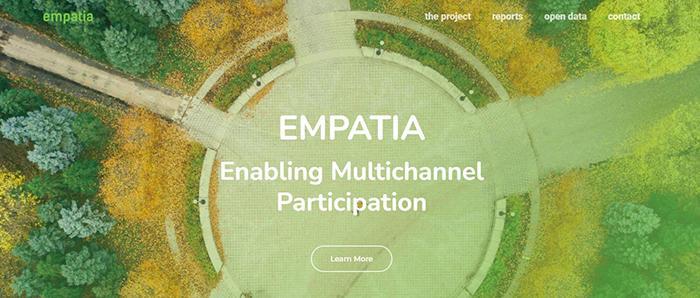Using digital technology to increase trust in politics
Many democracies around the world struggle with low levels of trust and participation in politics, particularly at a local level. To increase engagement, some local authorities in Europe invite their citizens to get involved in decisions about how public money should be spent – a process known as participatory budgeting.
University of Bradford researchers were part of an international team developing a new online platform to support this type of engagement, to determine if and how it might increase trust and participation in local politics.
The platform, called EMPATIA, was initially piloted across four European cities then taken up by nine more. To date, 55,000 people have put forward their views on over 3,000 different projects.
The role of the Bradford researchers, Professors Vishanth Weerakkody, Sankar Sivarajah and Zahir Irani, and Dr Amizan Omar, was to set the targets that the platform needed to achieve and then evaluate its performance, to identify where it could be improved to further increase participation. EMPATIA differs from other platforms in that it not only allows people to put forward projects they’d like to see funded, but also to track progress on projects which win the most votes, so that authorities can be held to account. The platform can also support consultations and debates, allow people to report other issues in the local area and can be integrated with more traditional in-person events, such as focus groups, meetings or physical voting.

Screenshot of the EMPATIA website
The Bradford team’s targets and evaluation covered both social and technical aspects of the platform. They looked at the numbers engaging at different stages of the process and how the platform functioned, including how quickly the webpages loaded and the amount of time people spent online. The team drew on existing research and focus group discussions and worked with local authorities to determine what they needed from a digital platform of this kind. They also compared the performance of the platform with previous participatory budgeting projects in the cities. The evaluation helped to highlight how the platform could be improved and how it might best be used to increase engagement.
Professor Sankar Sivarajah, Head of the School of Management, said: “So much of our lives is now spent online and there’s often the assumption that digital necessarily means better. While it can increase engagement from some groups, such as young people, it can risk excluding others. We found that participation was greatest when the EMPATIA platform was combined with more traditional forms of engagement.”
The initial pilots took place in Lisbon in Portugal, Milan in Italy, Říčany in the Czech Republic and Wuppertal in Germany. The platform was later used in other cities in Portugal, Italy, Mexico and Spain. It also underpinned a Youth Participatory Budgeting programme in Portugal, the first use of such a platform at a national level.

Professor Sankar Sivarajah
Vishanth Weerakkody, Professor of Digital Governance, who led the Bradford research effort, said: “Our research showed that digital technologies can help to improve participation and trust in politics, if implemented in the right way. The pilots were undertaken in countries with a history of this kind of engagement, which the UK does not yet have. But we hope that local authorities both here and elsewhere will, in the future, consider digital technologies like this to bring themselves closer to their voters.”
The EMPATIA project involved researchers from the Universities of Bradford and Brunel in the UK, the Centre for Social Studies (CES) in Portugal, the University of Milan in Italy and four digital SMEs: OneSource, D21, InLoco and Zebralog.

Professor Vishanth Weerakkody
Find out more
As part of our Research in Conversation video series, Professor Sankar Sivarajah and Professor Vishanth Weerakkody discuss their research into improving citizen engagement in local government through participatory budgeting and the impact of that research.
